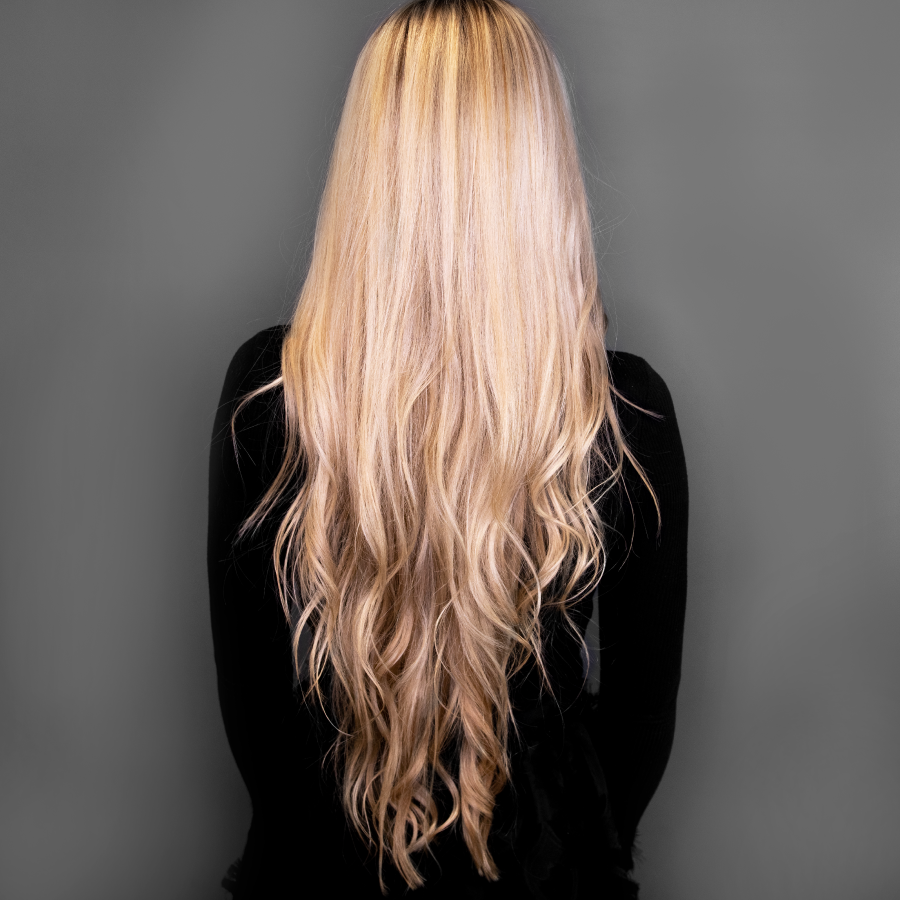
HAIR EXTENSIONS AND FIBRES – HOW THEY CAN WORK TOGETHER
Share
It’s likely that an image of a celebrity with glossy, shiny hair has caught your eye and you’ve been left wondering how they’ve achieved their look, the chances are the answer is hair extensions!
WHAT ARE HAIR EXTENSIONS?
Hair extensions, also known as hair weaves are a form of real or synthetic hair that is attached to the scalp. Often used to enhance hair length, volume, thickness or colour to natural hair, extensions are a medical procedure-free way to change a hair style. If you’re worried about hair loss, they could be an option for you.
WILL HAIR EXTENSIONS HELP WITH THINNING HAIR?
For thinning hair, extensions are a popular choice to make hair look fuller and healthier. They can be used to disguise patches of thinning hair, helping to boost confidence and negate any insecurities.
HOW DO HAIR EXTENSIONS WORK?
Hair extensions are available in two types, either made from real hair or from synthetic. There are varying options in terms of how they are fitted, with popular choices being either clipped in or taped. We would always recommend talking through these options with a professional salon, to determine what would be best for you and your hair.
CAN I DISGUISE OR HIDE THE HAIR EXTENSION CLIPS?
Hair fibres can be used to conceal hair extension clips with ease. With an extensive range of colour shades, Nanogen Hair Fibres can be simply sprinkled over the hair around the clip and used to conceal the most visible areas. This means that the hair can be worn in lots of different styles, making the hair extensions more flexible, without the worry of them showing.
WILL HAIR EXTENSIONS DAMAGE MY HAIR?
If hair extensions are not used properly, and proper precautions and care aren’t taken, it is possible that hair extensions could damage natural hair, or even cause hair loss. To prevent damage, it’s important to take into consideration the following:
- Making sure your natural hair is in good shape. Things like making sure your hair is clean and free from products, and that you’ve been using a conditioner to keep your hair both moisturised and strong.
- That you’re speaking with a recognised stylist, who understands hair extensions and can give you the best advice, not just in terms of the best type of hair extensions, but also how to look after them once you have them. Hair extensions shouldn’t be considered for long term use, it’s best to switch up your style and not to rely on them. Your stylist should be well placed to talk through how to use them.
CAN HAIR EXTENSIONS CAUSE HAIR LOSS?
By themselves, hair extensions do not cause hair loss. What can however cause issues, which can then lead to hair loss is when hair extensions are either overused or are not used properly.
If you are finding that you are experiencing hair loss from having hair extensions, then hair fibres are a great, safe option for boosting your hair, adding more volume. Nanogen Hair Fibres do a great job of concealing any thinning areas, as well as working incredibly well with fine hair to give some added volume.
ARE HAIR FIBRES AN ALTERNATIVE OPTION TO HAIR EXTENSIONS?
Hair fibres have seen a rise in popularity in recent years, partly due to their amazing ability to add instant volume and thickness. If you’re suffering with fine, flat hair, then it’s possible that hair fibres could really help give your hair the extra lift that it’s missing, taking away the need for adding hair extensions.
If you are worried about hair loss, we recommend speaking with your GP in the first instance, or making contact with Alopecia UK. The NHS website also provides a range of helpful information too.
DISCLAIMER
While our aim is to provide you with up to date and relevant information, drugs affect each person differently. As such we can not guarantee that this information includes all possible side effects and this information is not a substitute for medical advice. Always discuss treatment options and possible side effects with a healthcare professional who knows your specific medical history.




